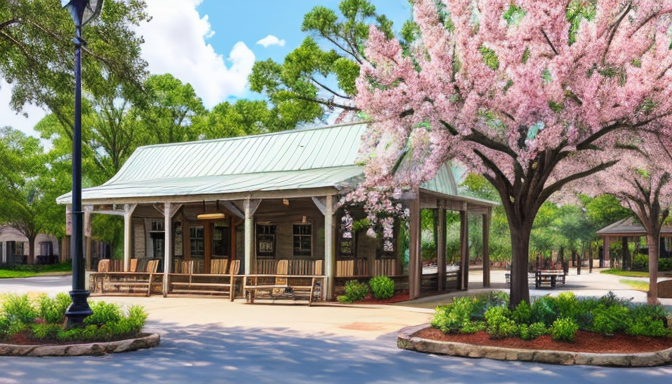Southern dialects are not just a way of speaking; they are a vibrant tapestry that weaves together history, culture, and identity. When you hear someone say “y’all” or “fixin’ to,” it’s more than just words—it’s a connection to a rich heritage that spans generations. The unique slang and regional dialects found in the South are like fingerprints of the past, each telling a story of migration, settlement, and cultural exchange.
These dialects have deep historical roots, influenced by a multitude of factors including the early settlers, African American Vernacular English, and the indigenous languages of Native Americans. This mixture has created a linguistic landscape that is as diverse as the people who inhabit it. For example, the way a person from Louisiana speaks can be worlds apart from someone in Georgia, yet both share a common thread that ties them to their Southern identity.
Moreover, Southern dialects play a crucial role in shaping social dynamics. They can foster a sense of belonging and community, making individuals feel connected to their roots. However, they also face stereotypes and misconceptions that can lead to misunderstandings. It’s essential to recognize that these dialects are not just quirks of language but are integral to the Southern experience, embodying the cultural nuances that define the region.
In contemporary society, the perception of Southern dialects is evolving. As more people embrace the uniqueness of these speech patterns, they become symbols of pride rather than barriers. So, the next time you hear a Southern drawl, remember that it’s not just an accent—it’s a reflection of a rich cultural identity that deserves to be celebrated.
The Historical Roots of Southern Dialects
Understanding the origins of Southern dialects is like peeling back the layers of an onion; each layer reveals a rich tapestry of history, culture, and migration. The Southern United States is a melting pot of influences, where English mingles with African, Native American, and various immigrant languages. This fusion has birthed a variety of regional dialects that are as unique as the people who speak them.
Historically, the South has been a crossroads for different cultures. The arrival of European settlers in the 17th century brought with it a mix of dialects from England, Scotland, and Ireland. Over time, these dialects evolved, influenced by the languages and speech patterns of enslaved Africans and indigenous peoples. This cultural exchange is evident in the Southern slang we hear today, where words like “y’all” and “fixin’ to” have become staples in everyday conversation.
Moreover, the migration patterns throughout the 19th and 20th centuries further shaped these dialects. The Great Migration saw many African Americans moving from the rural South to urban areas, carrying their dialects with them and influencing the speech of entire cities. This has led to a dynamic landscape of Southern speech that continues to evolve, reflecting the ongoing changes in society.
In essence, Southern dialects are not just a means of communication; they are a reflection of identity and a testament to the region’s complex history. As we delve deeper into the social significance of these dialects, it becomes clear that they are more than mere words—they are the heartbeat of Southern culture.

The Social Significance of Southern Dialects
Southern dialects are more than just a way of speaking; they are a vibrant tapestry woven from the threads of history, culture, and community. Each regional variation, from the charming twang of Texas to the melodic drawl of Louisiana, serves as a marker of identity. These dialects encapsulate the essence of Southern life, reflecting the rich cultural nuances that define the American South.
When you hear someone say “y’all,” it’s more than a contraction; it’s an invitation into a world where hospitality reigns supreme. Southern slang carries with it a sense of belonging and familiarity, fostering connections among people. It’s almost like a secret handshake that says, “We’re in this together.” However, this unique way of speaking often faces stereotypes. Some may dismiss it as unrefined or less educated, but that couldn’t be further from the truth.
In fact, Southern dialects enrich the social fabric of the region. They create a sense of community, bringing people together in shared experiences and stories. Consider how language shapes our interactions:
- Connection: Dialects create bonds between individuals, making conversations feel more personal.
- Identity: They reflect the cultural heritage and history of the South, showcasing its diversity.
- Perception: While some may hold biases against Southern speech, many embrace it as a badge of honor.
In contemporary society, as we become more interconnected, the perception of Southern dialects is evolving. People are beginning to appreciate the rich history and cultural significance behind these linguistic variations. They are not just remnants of the past; they are living expressions of the South’s identity, shaping how we see ourselves and how others perceive us.
Frequently Asked Questions
- What are Southern dialects?
Southern dialects are unique forms of speech that have evolved in the Southern United States, influenced by various historical, cultural, and social factors. They reflect the rich tapestry of the region’s identity.
- How do Southern dialects shape personal identity?
These dialects can foster a sense of belonging and community, as they often connect individuals to their heritage and culture. Speaking in a Southern dialect can evoke feelings of pride and nostalgia.
- Are Southern dialects viewed negatively?
Unfortunately, stereotypes do exist. Some people may associate Southern dialects with a lack of education or sophistication. However, many are working to challenge these perceptions and celebrate the dialects’ uniqueness.
- Can Southern dialects change over time?
Absolutely! Just like any language, Southern dialects are continually evolving. Factors such as migration, media influence, and social interactions play a significant role in their development.
- Why should we embrace Southern dialects?
Embracing these dialects allows us to appreciate the diversity of language and culture. They are a vital part of the Southern identity and contribute to the rich narrative of American history.